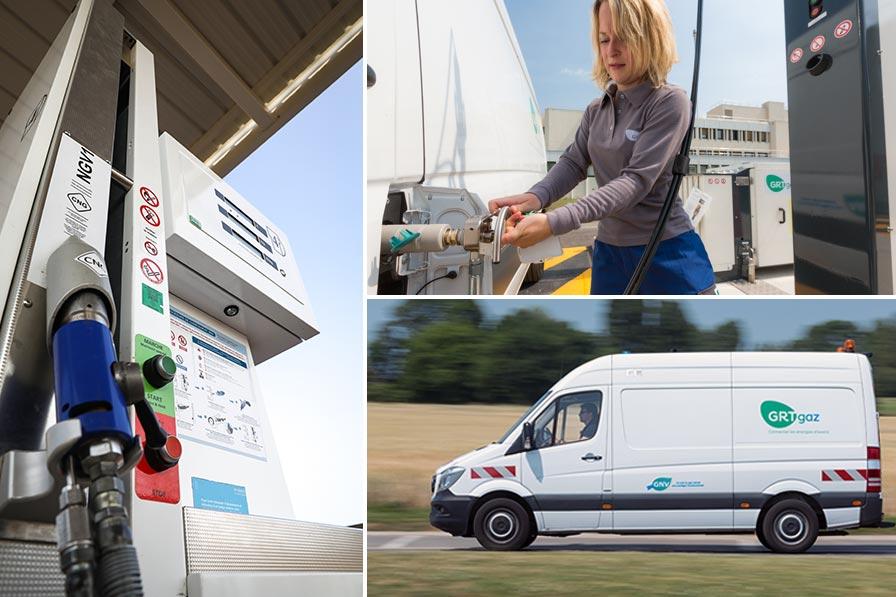Bio-NGV growing fast

The renewable version of NGV (natural gas for vehicles) offers a number of advantages for decarbonising transport. The latest data from the (bio)NGV observatory highlights the dynamic nature of the sector.
In 2023, almost 30% of the NGV consumed was bio-NGV, compared with 26% in 2022, and the sector is continuing to make progress towards the goal of being 100% bio-based by 2033.
To meet growing demand, the network of refuelling stations is continuing to expand, with 336 public refuelling points now available in France. NGV continues to be the preferred solution for decarbonising heavy goods transport, with almost 24,000 heavy vehicles (HGVs, buses, coaches and refuse collection vehicles) in February 2024, up 16.4% in one year. In total, almost 37,000 vehicles in France were running on NGV at the end of 2023, including more than 11,000 HGVs.
In 2023, (bio)NGV was the leading alternative to diesel for all types of heavy vehicle. Nearly 45% of buses registered in 2023 run on (bio)NGV1. The proportion of coaches running on this alternative also showed good momentum, increasing by 30%.
The choice of bio-NGV constitutes a reduction of around 80% in CO2 emissions over a vehicle's entire life cycle compared with a diesel engine2.
1 Source: UTP (Public Transport Union) statistics
2 Source: Carbone 4, IFPEN and JRC studies
Carbone 4 - 2020: "Road Transportation: What Alternative Motorisations are Suitable for the Climate?"